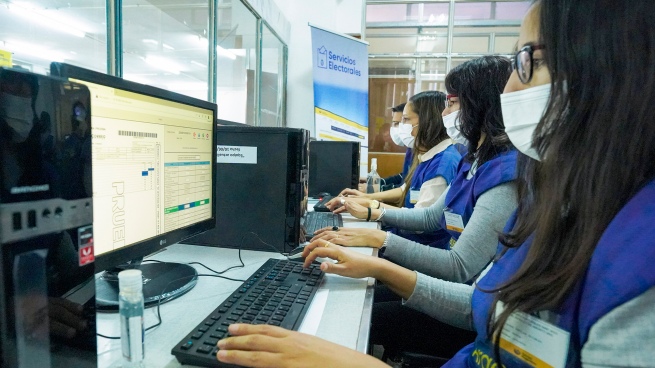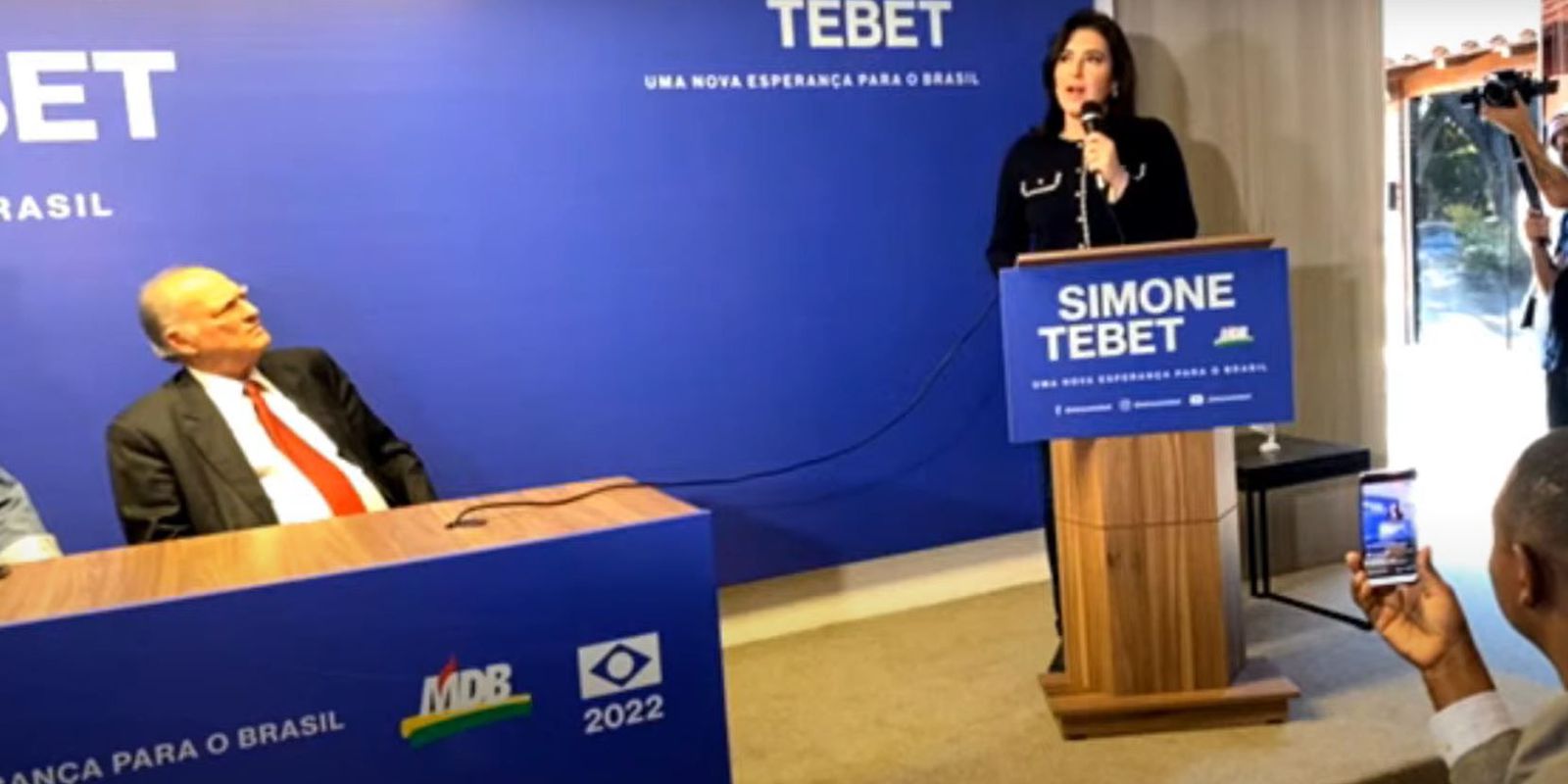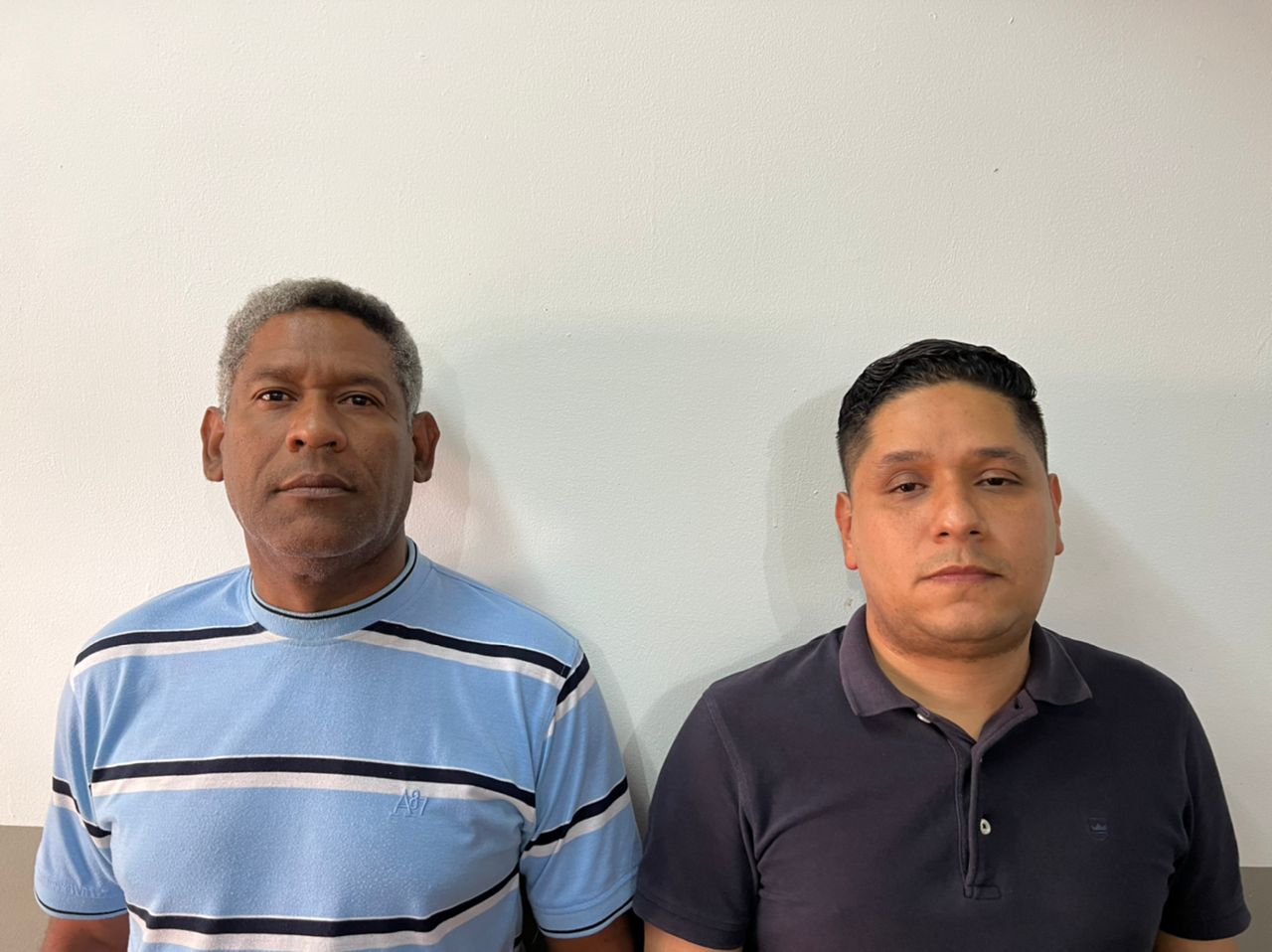The municipal elections in Santiago del Estero take place this Sunday normally in the 26 communes in which mayors and councilors are elected, on a day in which voter participation until after noon was around between 30% and 40% according to the cities.
More than 578,000 people from Santiago are eligible to vote in the elections for the positions of mayors and councilors in 26 of the 28 municipalities of the province, through 1,677 polling stations and 235 schools.
in the capital cityaround 13, the percentage of voters was around 30%, while in the interior it was higher, for example, in the city of Selva, where it was close to 40%.
On a cold day, although there were delays at some polling stations, especially in the capital city, over the course of Sunday morning the organization returned to normal so that citizens could cast their vote.
The two municipalities of Santiago that are exempt from the elections are Clodomira and Villa Atamisqui because they had their elections last year.
A) Yes, in the first category communes, Capital, Las Termas, Frías and Añatuyamayor and 12 councilors are voted, while in La Banda vice-intendent and ombudsman are also voted.
In the second category communes, Quimilí, Fernández, Loreto, Monte Quemado, mayor and 9 councilors are elected; while in the third category, Bandera, Beltrán, Campo Gallo, Colonia Dora, Forres, Los Juríes, Los Telares, Nueva Esperanza, Pampa de los Guanacos, Pinto, Pozo Hondo, Selva, Sumampa, Suncho Corral, Tintina, San Pedro of Guasayány Villa Ojo de Agua, mayor and six councilors will be voted.
In cities in the interior of the province, such as FríasFrom early hours the voters lined up to vote, and the mayor and candidate for re-election for the Frías Civic Encounter Front, Aníbal Padula, did the same around 8:30 at the “Carmen Catrén de Méndez Casariego” School.
“Today we came very early to exercise our right to vote and we came with a lot of optimism, with a lot of faith, convinced that this is the party of democracy where the only winners are the residents of the city,” said Padula.
“It is a day of democratic strengthening,” said Zamora about elections in Santiago del Estero
The governor of Santiago del Estero, Gerardo Zamora, described this Sunday’s session as one of “democratic strengthening and hope”, when casting his vote in the elections for mayors and councilors that were taking place in 26 municipalities of that province.
“It is a day of democratic strengthening and hope, for our beloved Mother of Cities, and for all the cities that today elect their authorities in our province,” Zamora said when voting, after 11 o’clock, in the capital city.
Zamora said that “these are elections that are lived very locally and with much more intensity” and added that “we have not heard that there is any problem or something that has interrupted the development of the elections, which is very good and I hope it will be a democratic day. , civic, important and that strengthens our democracy and municipalism”.
“I wish everyone the best of success and I, of course, ask the people of Santiago to cast their vote with hope, we have to get ahead and progress and that is what I see in this capital city,” said the president, maximum referent of the “Civic Front for Santiago”.
In addition, Zamora recalled his time as head of the municipality: “I was mayor of this municipality and the truth is that those were very difficult times, I think that now we can look at municipalism with much better expectations, cities are growing and the capital generated an important change and of course municipalism is very important, that people go to vote for their mayor because he is the one who is closest to the people”.
“When we reformed the Constitution in 2005, the intendancies were separated from the elections due to federal intervention, and at some point some transitory clause was thought to shorten mandates and that later they be elected again together with the governor, but in At that time we said no and that the elections remain as they are so that the municipalities have more autonomy and I think it has been very good,” Zamora considered.
The provincial president finally said that he hopes that these elections “will be a civic celebration and that democracy will be strengthened once again in our province; the best success for all those who participate and those who are elected will be successful for the next four years. “.
casting my #voteMay today be a day of democratic strengthening and hope, for our dear Mother of Cities, and for all the Cities that today elect their authorities in our province!!! pic.twitter.com/4fdEhfAd6a
– Gerardo Zamora (@GZamoraSDE) August 7, 2022
The candidates
In the capitalone of the candidates for mayor to vote early was the candidate of the Renovating Front, Fernando Giménezwho did it at the “Henry Dunant” school.
“This is a good day, like any election, since citizens can express themselves freely,” he said, stressing that “so far everything is going normally, although there are few people, I think it could be very cold in the morning.”
At once, Adrián Carrascosa, candidate for mayor of the Capital for the Party for a Santiago Obrerowas another of the first to cast his vote at the “Gumersindo Sayago” school, where he indicated that “my classmates were telling me so far everything is calm.”
The candidate for communal chief in the Capital of Together for Change (JxC), Natalia Neme, He said when voting that “the participation of the neighbors is very important because the next four years of municipal administration are defined”, for which he urged everyone “to attend and be the ones who decide our future”.
The current mayor of the Capital and candidate for reelection by the Civic Front, Norma Fuentescast his vote after noon, when he remarked that these elections “mean the consolidation of democracy.”
At the same time, he highlighted the importance of the elections, since “municipalism is increasingly taking a stronger role” because it is about “representing the voice of the neighbor so that he feels content in the municipality, which is the first contact he has “, and for this reason “the election of the municipal authority is very important when one projects a management model”.
In the municipality of La Banda, which has the largest number of voters after the Capital, the elections were held with a greater influx of voters from early hours.
In this city, the current mayor of the Renovating and Progressive Front, Roger Nediani, who is seeking his re-election, said he was “very happy because the electoral act is developing normally, obviously there are always some kind of inconveniences, especially in the opening of the polling stations that take a little longer, but it is an issue that has been normalizing” .
“The expectations for these elections are the best, when one goes to vote one renews hopes and improves expectations,” he said, adding that “voting is not only an obligation but also a right that we have as citizens, it is a moment where we can express what we want and desire”.
To its turn, the candidate for communal chief of the Civic Front for Santiago, Llamil Abdala, of this city, after voting, he stated that “we are flooded with hope, I have that same hope in my heart that my city begins to travel a new path where we bet with the bandeños to work together”.
On your side, the candidate for mayor of La Banda por Podemos, Silvia Poncevoted at the Santiago Apóstol school and showed great expectations when warning that “it has driven us to know that if you are not where decisions are made, you always have a ceiling or a brake”.
The candidate for the Band of Together for Change, Diego Giménezafter voting, he maintained that it is “a memorable day for democracy” and stressed that “what the people choose is the decision of democracy.”








